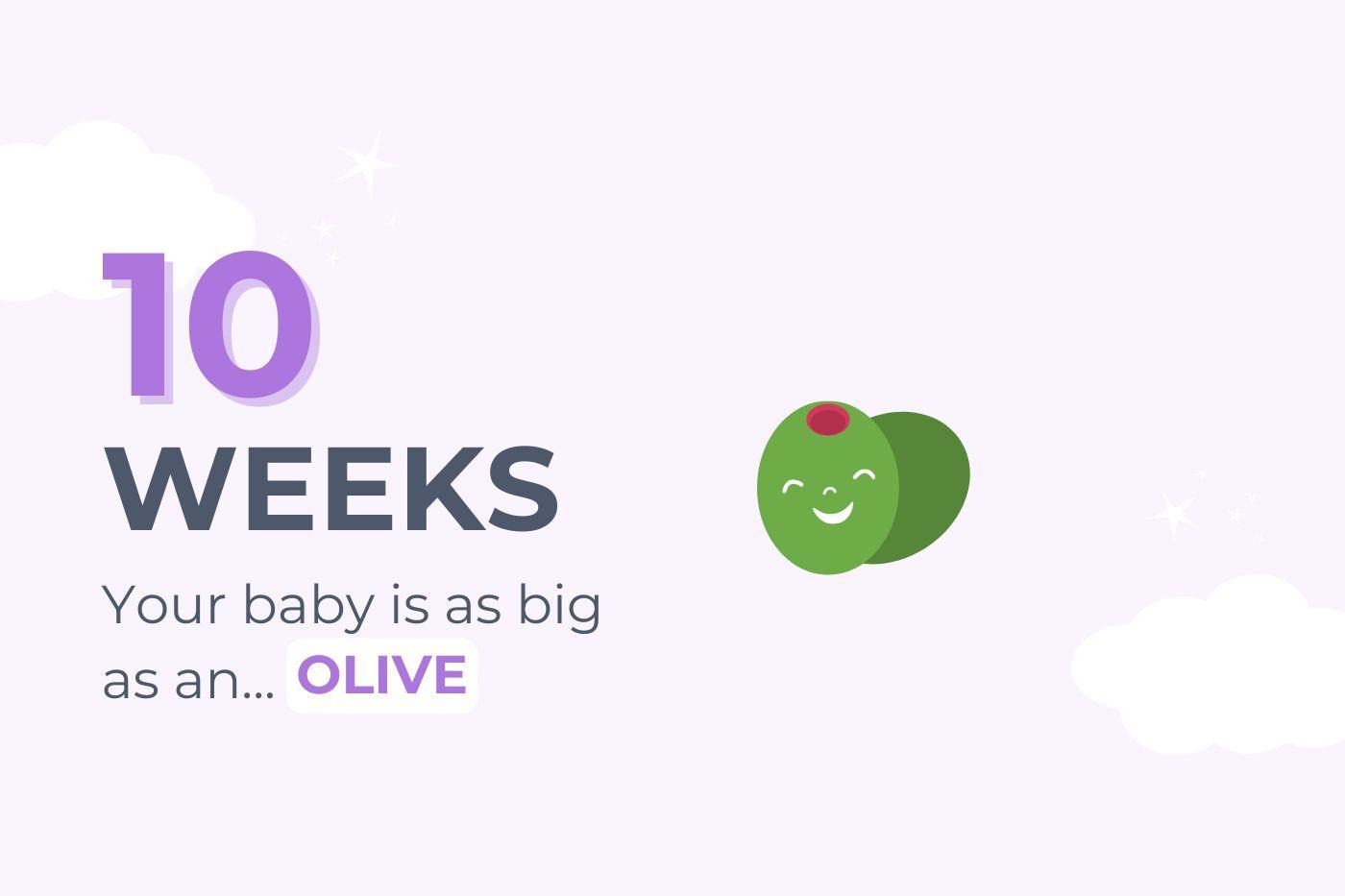PREGNANCY
10 Weeks Pregnant: Keep Your Immunity Up!
Getting sick while you're pregnant is miserable...prevention is your best friend!

Written by
Dr. Harvey Karp

SHARE THIS ARTICLE
PARENT PICKS
Bestsellers
PREGNANCY

Written by
Dr. Harvey Karp

SHARE THIS ARTICLE
Bestsellers
Though your baby still fits in the palm of your hand, they’ve just had a major growth spurt!
Tiny facial features—the nose, lips, jaw, and eyes—are becoming more defined, and a fine layer of peach fuzz is starting to grow across their body. Inside, organs are getting busy: the pancreas has begun producing insulin to process nutrients, while the liver is making small amounts of bile to help digest fats.
The yolk sac, which has sustained your baby so far, is now fading away—just as your placenta steps up to take over the vital job of nourishing and protecting your little house guest for the rest of pregnancy.
At 10 weeks, your baby is about the size of an olive.
You’re around 2½ months along.
You may have heard the myth that pregnancy “switches off” the immune system so the body doesn’t reject the baby. In reality, the picture is more complex. Early in pregnancy, your immune system actually ramps up to help the embryo implant securely in the womb lining. Then, for most of the second trimester, the immune response dials back—which is why some people with autoimmune conditions like arthritis may notice welcome symptom relief. As the third trimester approaches, the immune system reactivates, preparing for birth and recovery.
Whatever stage you’re at, one thing is true: getting ill while pregnant can be especially miserable—so prevention is your best protection.
Fraternal twins run in families and are more likely as maternal age increases (older ovaries sometimes release more than one egg). Assisted fertility treatments like IVF have also contributed to the rise in twin pregnancies. Identical twinning, however, remains steady worldwide at around 1 in 400 births.
Disclaimer: The information on our site is NOT medical advice for any specific person or condition. It is only meant as general information. If you have any medical questions and concerns about your child or yourself, please contact your health provider. Breastmilk is the best source of nutrition for babies. It is important that, in preparation for and during breastfeeding, mothers eat a healthy, balanced diet. Combined breast- and bottle-feeding in the first weeks of life may reduce the supply of a mother's breastmilk and reversing the decision not to breastfeed is difficult. If you do decide to use infant formula, you should follow instructions carefully.